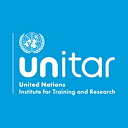Building a More Sustainable Future with the Support of the Academia

Name: Paloma Durán
Title: Law School Professor; PhD in Law, PhD in Political Science
Country: USA/Spain
Partnership: Gender Equality in the International Human Rights Framework Building Back Stronger
Academic institutions undeniably play an essential role in the attainment of the Sustainable Development Goals (SDGs). Primarily, it is in academia that the creative thinking needed to solve some of the most pressing challenges of our world is developed. Sometimes, however, it is not easy to bring together academic institutions and other sectors of society to work around some of these challenges. Paloma Durán is well aware of it and is dedicated to helping build bridges between both worlds. Her career is, in fact, an attestation that this connection is indeed possible.
Paloma holds PhD degrees in Law and in Political Science, and she worked as a law professor earlier in her career. Nonetheless, she has acquired impressive experience outside academia as well. Paloma served as Counsellor for Social Affairs in the Permanent Mission of Spain to the United Nations in New York and as a Senior Adviser at The Millennium Development Goals Achievement Fund. Later on, she became Director of The Sustainable Development Goals Fund. It was precisely at that time when she came across UNITAR. “One of our main tasks was to engage all the actors that can support the implementation of the 2030 Agenda for Sustainable Development — academia, think thanks, foundations, etc.”, she recalls. “Together with UNITAR, we developed the idea behind ‘The SDG Chair’, a joint initiative of the SDG Fund and universities around the world with the aim to promote the engagement of academic institutions in implementing the 2030 Agenda through training, advocacy and research activities”, she explains. Paloma adds that it was thanks to UNITAR that she and her colleagues realized that universities working around one SDG were actually contributing to the achievement of all 17 SDGs.
We discovered that the SDGs are completely interrelated. If you are working to improve access to water, you are going to improve access to health. Consequently, you will improve access to education. Consequently, you will improve access to employment.
In 2020, as Head of Division of Global Partnerships & Policies at the Organization for Economic Cooperation and Development, Paloma had another chance to work closely with UNITAR on a quest to, once again, harness the power of academia to help accelerate the achievement of the SDGs — more specifically SDG 5, which prioritizes gender equality. “We wanted to develop a training and research on gender, with a focus on women, peace and security. The idea was to disseminate what all the institutions are doing in this regard. We had a dense material and wanted to adapt it into a training series for diplomats and people working in the international settings”, she says.
For Paloma, the main challenge — and later the main reward — was to bring together the perspectives from academia, the international community and the private sector to the same table of discussion.
You have diplomats and people working in the private enterprises that are not always up to date with the most recent developments in the academia due to the intense nature of their work. You have also the academics that spend most of their time doing research, which is very important, but they can benefit from the pragmatic experience of other professionals. Then you have the students that want to pursue a professional career in international relations. Sure, they receive important education in the university but sometimes it can be somewhat theoretical.
Paloma and her team together with UNITAR organized a series of 4 webinars entitled “Gender Equality in the International Human Rights Framework: Building Back Stronger”. During the series, the participants learnt more about the Beijing Platform for Action — the most progressive blueprint ever for advancing women’s rights — and the Convention on the Elimination of All Forms of Discrimination Against Women, amongst other topics. “We brought together researchers, an ambassador who is dealing with gender issues in one of the Permanent Missions in NY, and a representative from the private sector that is also working in the implementation of the women, peace and security because the person is living in a country that is currently under conflict”, she says.
The webinars ran smoothly and the feedback received was positive. “Participants asked us to make the recordings available online and to prepare other series in the future”, Paloma tells enthusiastically. Now she is back to academia working as a law professor at Jaume I University in her home country, Spain. Nonetheless, she continues to engage in other projects with UNITAR. “We are preparing a training programme on the SDGs. It will be an official course delivered by a university and it will start in September this year”, she reveals. “As you can see, my experience with UNITAR has been great and I honestly think UNITAR is playing a very unique role giving training and advocacy on the implementation of the 2030 Agenda”. We are excited to see all Paloma’s future projects unfold!
